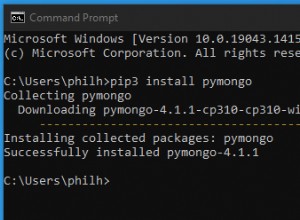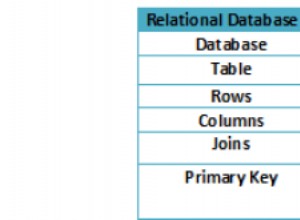आप इसे अभी कर सकते हैं (https://www.mongodb.com/blog/post/introducing-version-40-mongoose-nodejs-odm के साथ)
var mongoose = require('mongoose');
// mongoose.Promise = require('bluebird'); // it should work with native Promise
mongoose.connect('mongodb://......');
var NodeSchema = new mongoose.Schema({
children: [{type: mongoose.Schema.Types.ObjectId, ref: 'Node'}],
name: String
});
var autoPopulateChildren = function(next) {
this.populate('children');
next();
};
NodeSchema
.pre('findOne', autoPopulateChildren)
.pre('find', autoPopulateChildren)
var Node = mongoose.model('Node', NodeSchema)
var root=new Node({name:'1'})
var header=new Node({name:'2'})
var main=new Node({name:'3'})
var foo=new Node({name:'foo'})
var bar=new Node({name:'bar'})
root.children=[header, main]
main.children=[foo, bar]
Node.remove({})
.then(Promise.all([foo, bar, header, main, root].map(p=>p.save())))
.then(_=>Node.findOne({name:'1'}))
.then(r=>console.log(r.children[1].children[0].name)) // foo
सरल विकल्प, बिना नेवला के:
function upsert(coll, o){ // takes object returns ids inserted
if (o.children){
return Promise.all(o.children.map(i=>upsert(coll,i)))
.then(children=>Object.assign(o, {children})) // replace the objects children by their mongo ids
.then(o=>coll.insertOne(o))
.then(r=>r.insertedId);
} else {
return coll.insertOne(o)
.then(r=>r.insertedId);
}
}
var root = {
name: '1',
children: [
{
name: '2'
},
{
name: '3',
children: [
{
name: 'foo'
},
{
name: 'bar'
}
]
}
]
}
upsert(mycoll, root)
const populateChildren = (coll, _id) => // takes a collection and a document id and returns this document fully nested with its children
coll.findOne({_id})
.then(function(o){
if (!o.children) return o;
return Promise.all(o.children.map(i=>populateChildren(coll,i)))
.then(children=>Object.assign(o, {children}))
});
const populateParents = (coll, _id) => // takes a collection and a document id and returns this document fully nested with its parents, that's more what OP wanted
coll.findOne({_id})
.then(function(o){
if (!o.parent) return o;
return populateParents(coll, o.parent))) // o.parent should be an id
.then(parent => Object.assign(o, {parent})) // replace that id with the document
});




